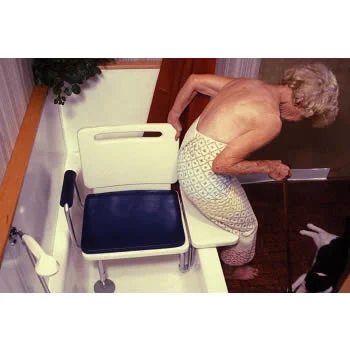According to a study in Canadian Medical Association Journal, frailer older patients are at higher risk of readmission to hospital or death within 30 days after discharge from a general internal medicine ward.
Readmission within thirty days after discharge is fairly common and result in significant costs for the healthcare system. The costs can be reduced by identifying patients that are at risk of readmission but it is difficult to do so because of a lack of adequate tools to predict this risk accurately.
During the study, the researchers assessed whether the Clinical Frailty Scale, an easy-to-use tool that can be used at the bedside by physicians and healthcare professions, could help identify patients who are at risk of readmission or death within 30 days after discharge. The study included 495 patients, half of which were women, with a median age of 64 years. Frailty was measured in terms of mild frailty (score of 5) corresponding to difficulty with 1 or more complicated daily living activities; moderate frailty (score of 6) corresponding to difficulty in bathing, dressing or climbing stairs; and severe frailty (score of 7) corresponding to physical or mental dependence on someone for 3 or more daily living activities.
The results showed that approximately one-third of the patients were frail with a score of 5 or higher on the Clinical Frailty Scale in the week before admission to hospital. 85 percent of the patients were readmitted or had died within 30 days after discharge. Frail patients were at 24 percent risk of readmission or death within 30 days as compared to 14 percent for nonfrail patients. Patients with moderate or severe frailty were at 31 percent risk of readmission or death within 30 days. The study showed that frailty assessments improved the prediction of post-discharge outcomes and thus should be included in discharge planning procedures.
"Although frailty or vulnerability before becoming ill may affect outcomes after discharge, patients in hospital may also experience an acquired, transient period of risk for adverse events that is harmful in addition to the stress of the acute illness," writes Dr. Finlay McAlister, University of Alberta, with coauthors. "This 'post-hospital syndrome' is a multidimensional construct that incorporates sleep deprivation, cognitive stress, poor nutrition and physical pain. Patients who are already frail before hospital admission may be more sensitive to the stresses of this syndrome and at higher risk of readmission and poor outcomes."
Source: Canadian Medical Association Journal
Image Credit: Wikimedia Commons


![Tuberculosis Diagnostics: The Promise of [18F]FDT PET Imaging Tuberculosis Diagnostics: The Promise of [18F]FDT PET Imaging](https://res.cloudinary.com/healthmanagement-org/image/upload/c_thumb,f_auto,fl_lossy,h_184,q_90,w_500/v1721132076/cw/00127782_cw_image_wi_88cc5f34b1423cec414436d2748b40ce.webp)





